Heaven on Earth? Documentary Looks at Life in The Villages
An interview with the 25-year-old filmmaker of ‘Some Kind of Heaven’ who wants to challenge society’s view on growing older
In a world full of ageist attitudes, Lance Oppenheim is turning his director's lens toward the complexities inherent in stereotypes. At 25, this filmmaker examines how we look at aging. That he cares about generations far beyond his own is something remarkable in itself. And hopeful. With incredible wit and vision, he's capturing the lives of older people in a way that's turning heads.
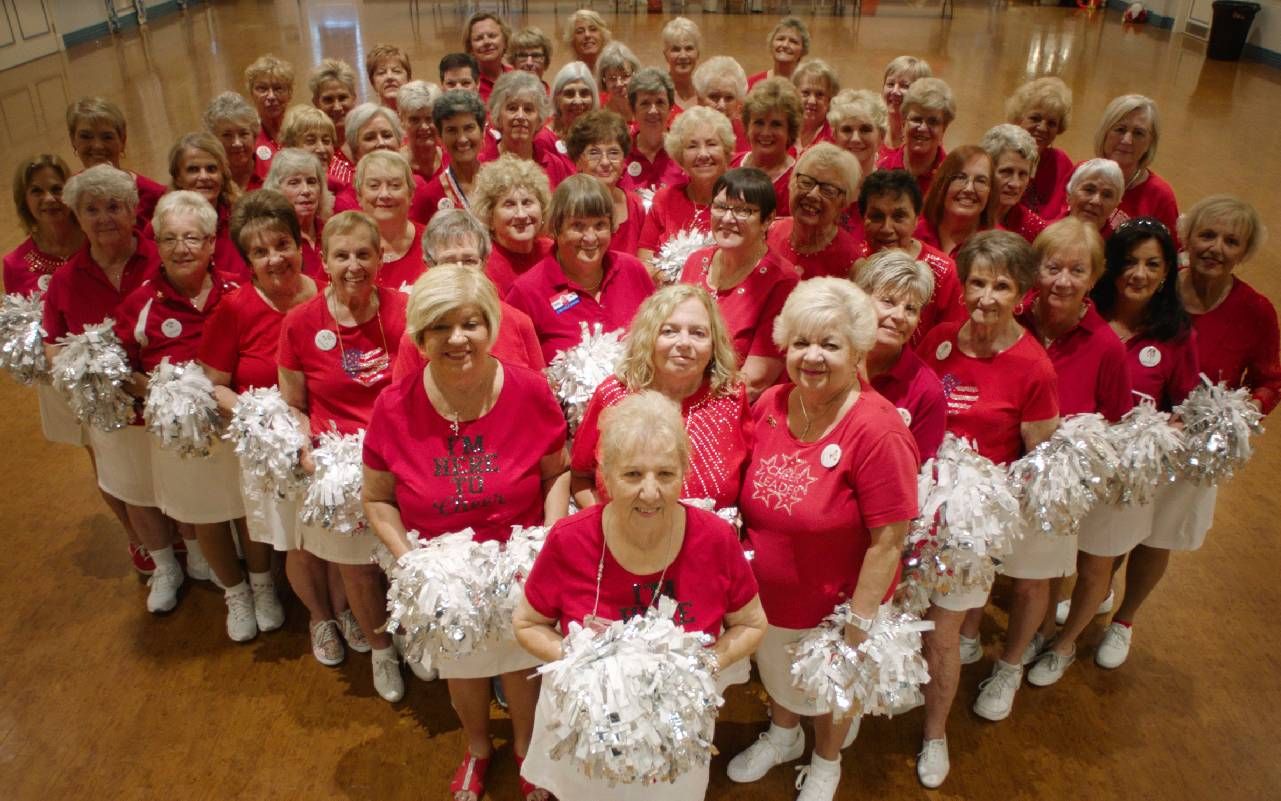
His documentary, "Some Kind of Heaven," which premiered in 2020 at the Sundance Film Festival and is now being released widely (on Amazon Prime and YouTube), was produced by Hollywood director Darren Aronofsky, The New York Times (its first feature film production) and the Los Angeles Media Fund. In fact, Oppenheim was the first Sundance Ignite Fellow, a program for young filmmakers, to debut at the festival.
A Film That Challenges Assumptions
In making his first feature-length documentary, Oppenheim admits the process totally changed his view about aging. "Before making this movie, I thought of old age as a point of arrival where all of your struggles are in the rearview mirror of your life. These stories showed me that's not entirely true – that even in retirement, people continue to chase their dreams and seek fulfillment and look for love."
The setting, The Villages community of Florida, often called a "Disneyland for Retirees" is one of the fastest-growing cities in the U.S. It caters to roughly 130,000 people 55+ and has raised eyebrows for its apparent quirky lifestyle where people can amuse themselves nonstop with everything from pickleball to synchronized swimming to street rod golf-carting to cheerleading. The residents seemingly go there to forever live young, in cookie-cutter-looking neighborhoods. That fascinated Oppenheim, who sought to understand why people would want to "bubble" themselves in this manicured world.
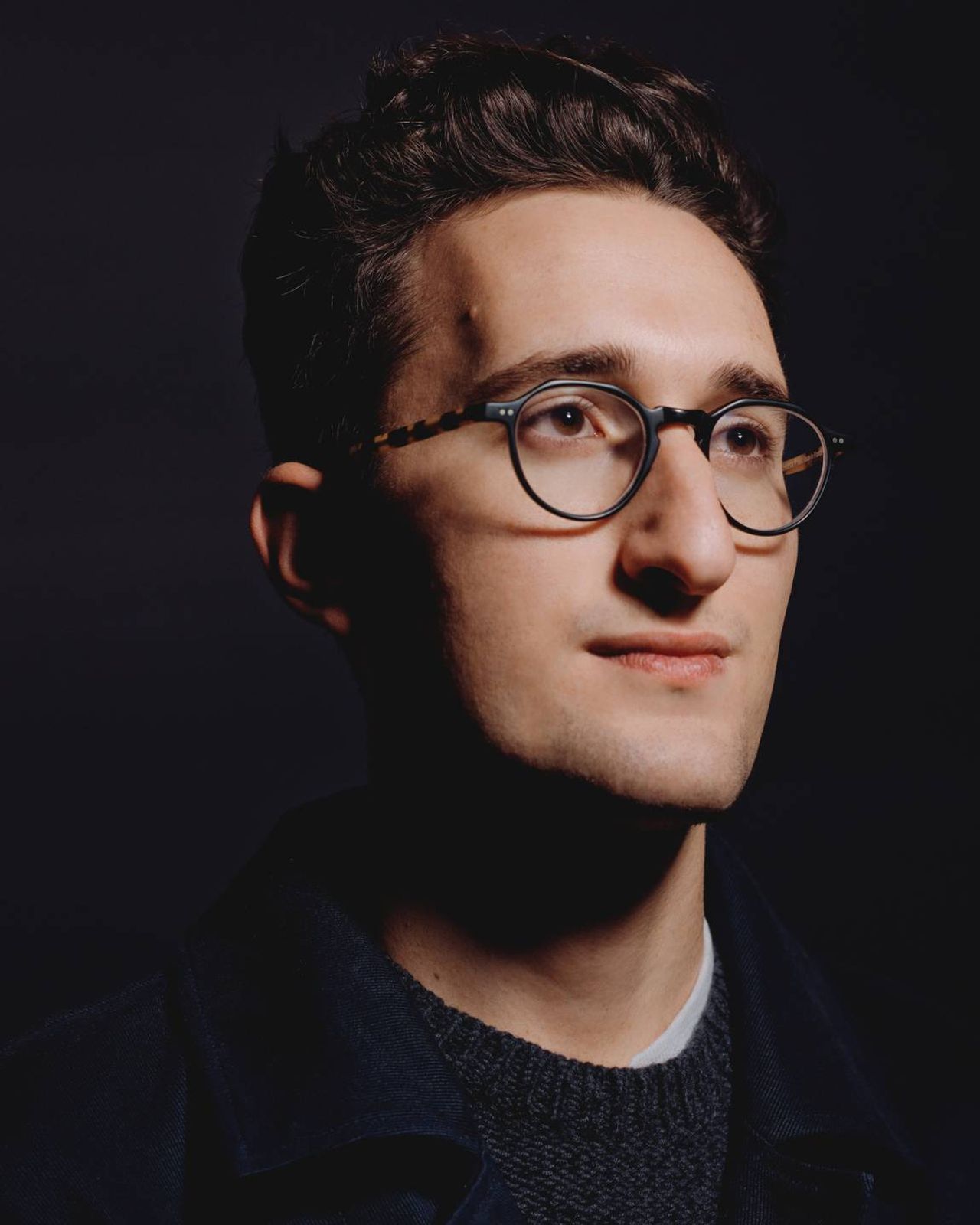
Oppenheim challenges the assumptions of this fountain of youth. The story anchors itself on four Villages residents: Anne, Reggie, Dennis and Barbara -- all complicated people struggling with their own particular life problems. In the film, they grapple with loneliness, grief, homelessness and addiction, none of which has anything to do with their age; rather, problems that any person could struggle with.
Oppenheim grew up in south Florida, and admits he has long been mesmerized by the allure of the many retirement communities there. He has created a number of short films profiling older subjects for The New York Times Op Docs, as well as The Atlantic. For such a young filmmaker, he has already covered a lot of ground and feels compelled to present a better understanding of older Americans.
Angela Burton: As a young filmmaker, how do you think you can impact the current view of older people as depicted in film?
Lance Oppenheim: I never tried to look at the folks in The Villages as if they were 'old people.' I wanted to look at them as just 'people.' These were people who were just as complicated and filled with contradictions as anybody else. And I think, you know, in movies especially, in representations of those who are older, I find that a lot of movies seek to defang them and present their lives as if they have reached a point of arrival. A lot of their problems are in the rearview mirror of their life. To me, [these stories] are fascinating – where age isn't the central point of the story, it's certainly an aspect of it – but these are just people, and the fact that they're older is interesting in a sense that they have had experience, they have navigated this planet for maybe six, seven, eight decades.
In "Some Kind of Heaven," it's the Peter Pan Effect. You have people returning back to their youth, but yet a lot of the problems of their youth are still plaguing them and haven't necessarily gone away. These are stories I continue to be interested in: the ways in which we choose to think about ourselves, the ways in which we choose to want to remember ourselves, and rewrite the things in our pasts that feel painful.
How do you think 'Some Kind of Heaven' will resonate with multi-age audiences? Do you think there will be a better understanding of aging stereotypes? The whole notion of growing up versus growing old?
I think there is this sort of confrontation the film has had with younger audiences. It struck more of a chord with them. They go, 'Oh my God, I guess my life will never really be figured out' and in my mind that was sort of the feeling I wanted to impart to viewers. There is something existentially very terrifying about that idea that there is a world in which you never fully grow up and never fully figure out the questions that you're probably constantly asking yourself – about who you are, and 'who will I be when I'm older.'
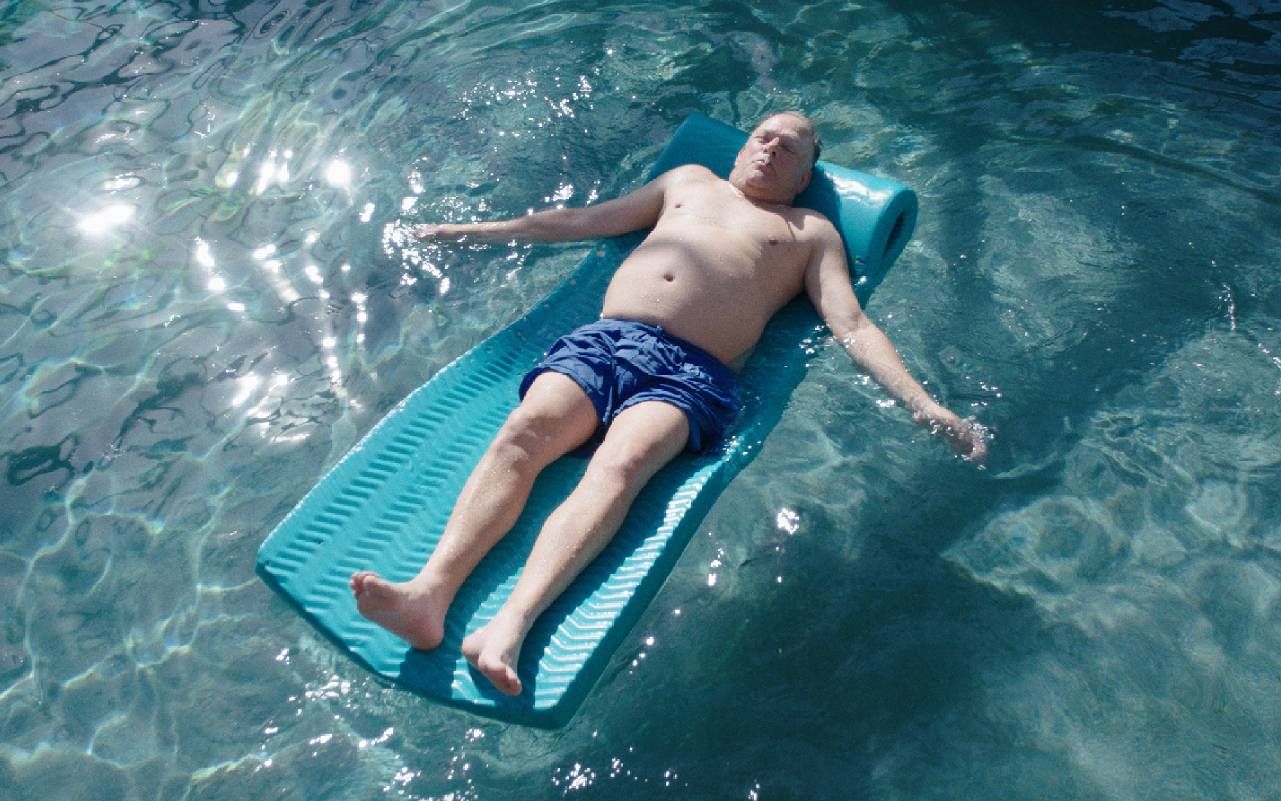
The characters in the movie – none of them see themselves as 'old people.' In my mind, I see this as a very hopeful way to go about living a life, and how there is some joy that can come from the search of becoming someone. The fact that when you see people in their eighth or ninth decade of navigating the earth, that they are still in the process of evolving and becoming someone different or someone better, or just striving to be better – is a very hopeful one to me. I think older audiences may find this movie more depressing, but I think younger audiences are sort of hopefully seeing what I was trying to say.
What was the big surprise for you in making this film?
For me, the biggest surprise was the closer we got with the residents at the place, the more I realized why The Villages is so popular and the less I became so skeptical of the place. Obviously, (such as politically and racially), with the nomenclature, the culture itself, I think I have a lot of problems with that.
But I also understand why the place is so successful, and I do think it does serve a role in our society that I don't think anywhere else provides and I think that's a problem. It's a bittersweet idea to me, because I do think the design of the place provides ways to distract yourself before dying — through clubs, through activities, through this attempt to transcend the ideas of what old age will look like.
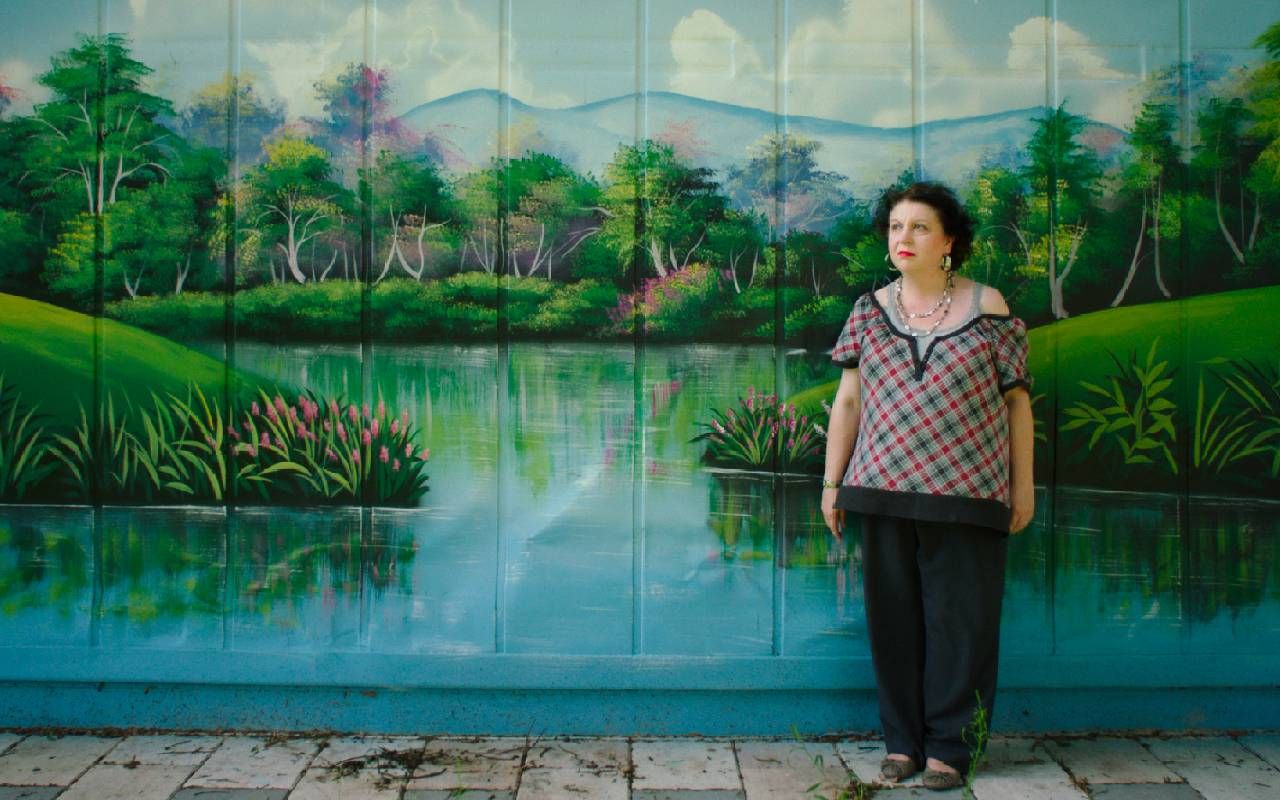
Every way I was looking at the community before – like 'The Stepford Wives,' like 'The Truman Show,' maybe more ironically looking at the place – I felt it ultimately became something I thought was more sentimental and more sincere. I do think about community and I think about how so many older folks don't have communities really, especially if they're far away from their families. COVID-19 has sequestered so many in senior living communities and caused so much loneliness and separation.
I look at the Villages now as a complicated place, but also as a place that makes sense because our society is not set up in a way can better address the problems of what it means to age today.
Loneliness comes across really clearly in the film. If this is also a nod to how we can be a less lonely society, do we use community to find our common likes and goals? Can filmmaking help us understand loneliness better?
The entire world is feeling a deep sense of loneliness. I think about how, right now, it's hard to maintain a sense of community if you are alone. And I think about this film in the same way. I think about the journey all four of the folks have gone on, not just inside the movie, but in their own lives, and after the movie where they are now. They've all, in their specific ways, found a little nested community to join, or at least become more a part of.
Regardless, no matter where you go, no matter where you are, even in a city like New York that has so many people, you can still find and feel profound senses of loneliness. And I've felt the same. I rely so heavily on people in my life to bring me joy. I don't like being alone very often.
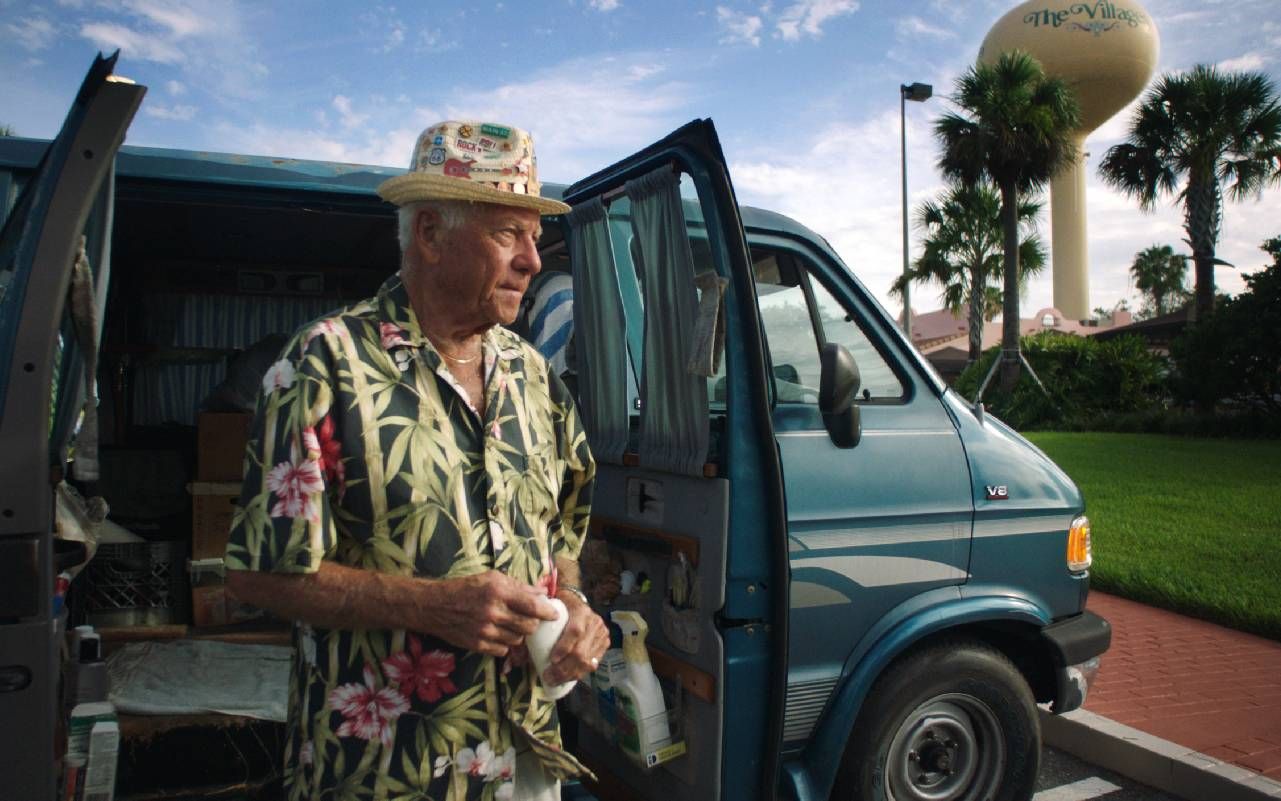
If you could change one thing about aging in America as a young filmmaker, what would that be?
If I'm thinking more societally or structurally, there is something about age-segregated living that is not the answer to things. If we're looking at how COVID-19 has really decimated so much of the generation that we've lost…I think there's an unfortunate thing that's happened where we as a culture look at these folks who have died, who are older, who have become statistics and numbers, instead of people and I think part of that — you know, every time a younger person says, 'Oh, that virus is only killing those who are growing older' — it's a terrible thing to say because these people [who've died] haven't accomplished all the things they wanted to in life.
I think there needs to be, in my mind, more films with older characters in them that are not about 'old people.' 'Old people' movies, I think, as a genre, should be obliterated. I think age-segregated living should be rethought and I think it would be more helpful if we were to return to a time where we had three generations in the house.
Oppenheim has been working on several projects – fiction movies, a television show and another documentary. He's waiting to see what will happen next. "Some Kind of Heaven" is eligible for this year's Academy awards, and the list will be announced Feb. 9.
Currently, he is working with Aronofsky on another film, so there are good things coming down the pipe. Oppenheim calls himself a "hustler" and has the mentality that making the art is half the battle and the other part is getting the art in front of people.
"What I want to happen is people watch the film and discuss [what they've seen]," says Oppenheim.
Learn more about "Some Kind of Heaven" including where you can watch the film here.

